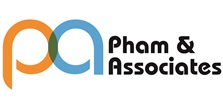
Applying competition law to handle the abuse of intellectual property rights over generic drug products
11/12/2018
...the basic objective of competition law is to protect the transparency of the competitive market against abusive behavior and ultimately to protect consumers
At a recent TRIPS Council (Geneva) meeting in Geneva (Switzerland), several countries including India, South Africa, Brazil and China called on members to share their experiences in applying competition law and policy to deal with the abuse of intellectual property over drugs.
These countries believed that we should consider handling intellectual property misuse through competition law and that members need to discuss and share application experiences. Specifically, according to them, WTO members should discuss and learn how to approach and apply national competition law and policy to prevent price compromise behaviors or to apply anti-abuse terms on patent agreements that cause unreasonable restrictive effects on the accessibility to new technologies, preventing market entry of generic drugs, and thereby, could lead to higher drug prices.
Besides, the South African representative pointed out that the basic objective of competition law is to protect the transparency of the competitive market against abusive behavior and ultimately to protect consumers.
However, some countries, such as the United States, the EU and Switzerland, expressed concern about this proposal. The EU representative said that members should carefully consider the use of competition law and policy as an instrument for TRIPS agreements. To be applicable, measures used in the competition policy should be consistent with the provisions of the TRIPS Agreement and should not be used as a tool to evade the fulfillment of the obligations under the agreement.
Sharing the same view, representative of the United States emphasized that one of potential negative impacts of this issue is that it could prevent members from implementing and maintaining tough intellectual property policies/regimes. As a result, it could reduce research motivation to create important patents for the community in the long term.
Swiss representatives have come up with the idea of trying to forestall price hikes on a voluntary basis (such as through the operation of the Medicines Patent Pool) rather than trying to dismantle the existing legal system on intellectual property.
* MPP is a United Nations-backed community health organization. MPP negotiates with those who have drug patents (for the treatment of HIV, hepatitis C and tuberculosis) so that they allow other manufacturers to produce and distribute the licensed drugs relating to the above three diseases in developing countries. This contributes to increasing competition in the market and enables consumers in developing countries to enjoy better prices and more access to new quality medicines.
(Source: Department of Competition and Consumer Protection of MOIT)
These countries believed that we should consider handling intellectual property misuse through competition law and that members need to discuss and share application experiences. Specifically, according to them, WTO members should discuss and learn how to approach and apply national competition law and policy to prevent price compromise behaviors or to apply anti-abuse terms on patent agreements that cause unreasonable restrictive effects on the accessibility to new technologies, preventing market entry of generic drugs, and thereby, could lead to higher drug prices.
Besides, the South African representative pointed out that the basic objective of competition law is to protect the transparency of the competitive market against abusive behavior and ultimately to protect consumers.
However, some countries, such as the United States, the EU and Switzerland, expressed concern about this proposal. The EU representative said that members should carefully consider the use of competition law and policy as an instrument for TRIPS agreements. To be applicable, measures used in the competition policy should be consistent with the provisions of the TRIPS Agreement and should not be used as a tool to evade the fulfillment of the obligations under the agreement.
Sharing the same view, representative of the United States emphasized that one of potential negative impacts of this issue is that it could prevent members from implementing and maintaining tough intellectual property policies/regimes. As a result, it could reduce research motivation to create important patents for the community in the long term.
Swiss representatives have come up with the idea of trying to forestall price hikes on a voluntary basis (such as through the operation of the Medicines Patent Pool) rather than trying to dismantle the existing legal system on intellectual property.
* MPP is a United Nations-backed community health organization. MPP negotiates with those who have drug patents (for the treatment of HIV, hepatitis C and tuberculosis) so that they allow other manufacturers to produce and distribute the licensed drugs relating to the above three diseases in developing countries. This contributes to increasing competition in the market and enables consumers in developing countries to enjoy better prices and more access to new quality medicines.
(Source: Department of Competition and Consumer Protection of MOIT)
Other articles
PHAM & ASSOCIATES


